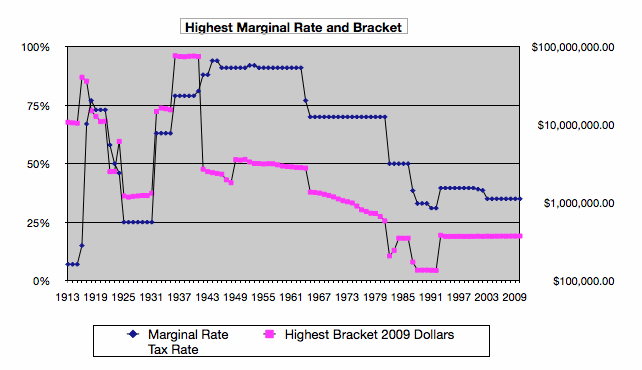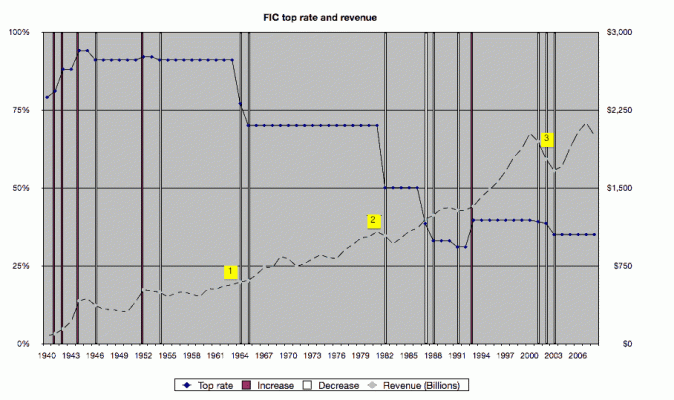My understanding is that this has been rejected by the vast majority of mainstream economists. Those that are clinging to it seem to be doing so for ideological reasons rather than supporting data/science.
Same article referenced by samclem:
In each case, the personal income taxes paid by "the rich" increased when their tax rates were cut. The top 10 percent of earners in the Reagan years paid 48% of the income tax burden between 1981 and 1988.
It is often forgotten that the wealthy often shelter their money in times of high taxes. The wealthy don't need to invest, they are already wealthy. They sit on their money. No dividends, no interest, no taxable income. When tax rates are low, they invest, making more money paying more taxes, in turn driving the economy. They see no need to do so when rates are high because the return isn't worth the risk.
I would agree that the examples sited reduced very high rates to rates that were much lower, however, the Bush tax cuts reduced fairly low rates to even lower rates and revenue still increased.
Taxes are a shared responsibility. No one, no matter how poor, should be exempted. On the other hand, poor or wealthy, should be bankrupted by taxes. In all sharing in the burden, we keep out individual taxes low. I am as opposed to punitive income taxes on the wealthy as I am to regressive taxes like the soon to be proposed value added tax. Neither is fair. We fought and won a war over this stuff back in the 1700's.
Arguments over tax rates and who should pay more and who doesn't have to pay miss the point. The point is the Federal Government is spending too much money. We, as a nation, have some hard choices. No matter what your feelings towards Health Care, SS, Medicare, foreign aid, corporate welfare, etc. we can't afford all of it. Raising taxes, even if raising taxes increased revenue, is a dead end street. Someday, there will be no more money to take! You can't have your cake and eat it too.


